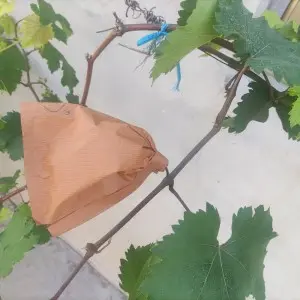Dec . 11, 2024 09:58 Back to list
Wholesale Pollen Supply for Effective Pollination of Pear Trees in Orchards
The Importance of Wholesale Pollen for Pollination of Pear Trees in Orchards
Pollination is a critical process in the life cycle of pear trees, playing an essential role in fruit production and overall orchard health. In commercial orchards, where the goal is to maximize yield and quality, the use of wholesale pollen for pollination has emerged as a vital practice. This article will explore the significance of wholesale pollen, its benefits, and its role in enhancing the productivity of pear orchards.
Understanding Pollination
Pollination is the transfer of pollen from the male part of a flower (anther) to the female part (stigma). For pears, which are typically not self-pollinating, cross-pollination is crucial for successful fruit set. Certain varieties of pears require specific pollen sources to produce high-quality fruit, making the selection and availability of the right pollen essential for orchard success.
The Role of Wholesale Pollen
Wholesale pollen refers to the mass production and distribution of pollen grains, often sourced from various compatible pear tree varieties. This method has become increasingly popular among fruit growers who need a reliable and efficient way to enhance pollination and, consequently, fruit yield. The use of wholesale pollen offers several advantages
1. Increased Pollination Efficiency By using wholesale pollen, orchardists can ensure that the pollen is readily available during the blooming period. This is particularly important in larger orchards where the distribution of natural pollinators, such as bees, may not be sufficient to meet pollination needs.
2. Strain-Specific Benefits Different pear varieties may have unique pollen requirements. Wholesale pollen suppliers can provide specific strains that enhance the overall compatibility and yield of the pear trees in the orchard. This tailored approach can lead to improved fruit set and quality, making it easier for orchard owners to meet market demands.
3. Consistency and Reliability Unlike relying solely on natural pollinators, the use of wholesale pollen allows orchardists to have more control over the pollination process. This control leads to more consistent fruit production year after year, which is crucial for businesses that operate on tight profit margins.
wholesale pollen for pollination of pear trees in orchards

4. Cost-Effectiveness Purchasing wholesale pollen can be more economical than maintaining a large number of pollinator insects or managing multiple flowering varieties within the same orchard. This cost-effectiveness makes it an attractive option for larger-scale commercial operations.
5. Mitigating Environmental Challenges Factors such as pesticide use, climate change, and habitat loss can significantly impact the populations of natural pollinators. By utilizing wholesale pollen, growers can mitigate these challenges by providing a guaranteed source of pollen, thus protecting their crops from potential pollination failures.
Best Practices for Using Wholesale Pollen
To maximize the effectiveness of wholesale pollen in pear orchards, several best practices should be followed
- Timing It is crucial to apply pollen at the right time to coincide with the flowering period of the pear trees. This timing ensures that the pollen is fresh and ready for successful fertilization.
- Application Methods Various application methods exist, including manual application or using specialized equipment that can distribute pollen evenly across the trees. The chosen method should consider the size of the orchard and the desired level of precision.
- Monitoring Pollination Success After applying wholesale pollen, growers should monitor the successful fruit set to assess the effectiveness of their pollination strategy. This data can help refine practices in subsequent years.
Conclusion
In conclusion, the use of wholesale pollen for the pollination of pear trees in orchards has become an indispensable practice for maximizing fruit yield and quality. By understanding the dynamics of pollination and adopting best practices, orchardists can enhance the success of their pear crops, ensuring a fruitful harvest that meets consumer demands. As environmental conditions continue to change, the role of wholesale pollen will likely grow in importance, helping to sustain the apple industry in a challenging landscape.
-
Pollen Peach Tree for Pure Pollination and High-Quality Peach Pollen
NewsJul.30,2025
-
Premium Cherry Pollen for Pure Pollination & Different Types
NewsJul.30,2025
-
Artificial Pollination Solutions for Various Plant Pollen Types
NewsJul.29,2025
-
Artificial Pollination Solutions for All Plant Pollen Types
NewsJul.29,2025
-
Premium Plant Pollen for Pure Pollination & Pollen Block Solutions
NewsJul.29,2025
-
Artificial Pollination Solutions for Efficient Crop Yields
NewsJul.28,2025